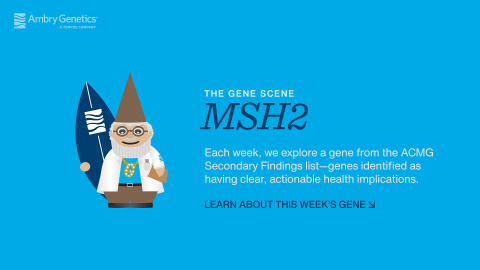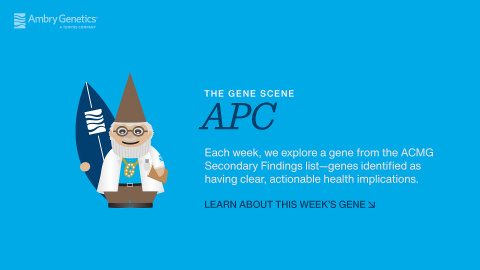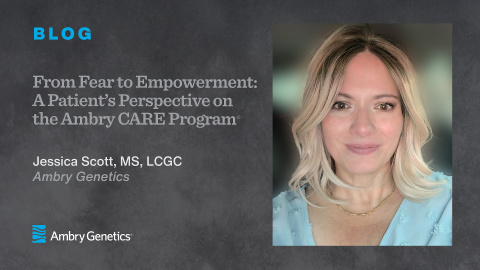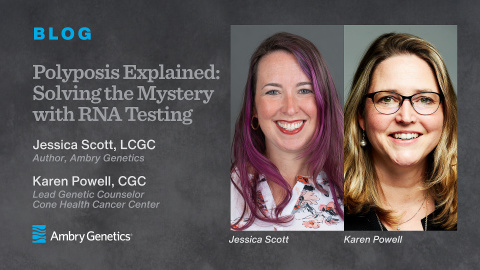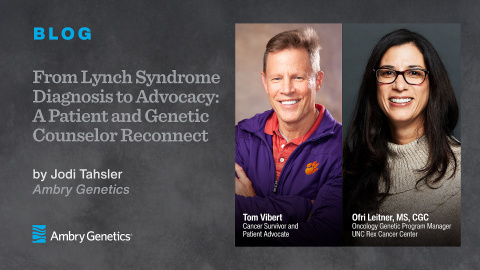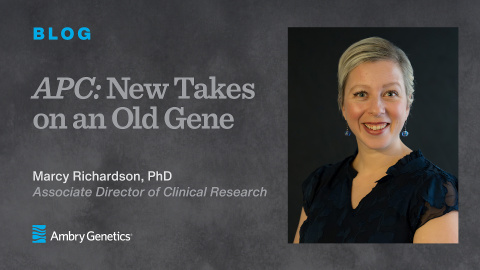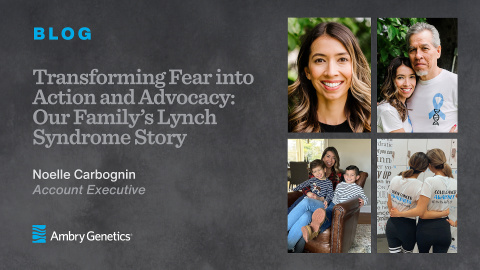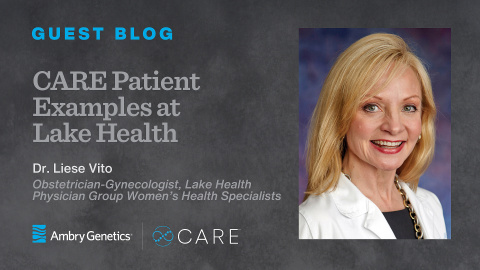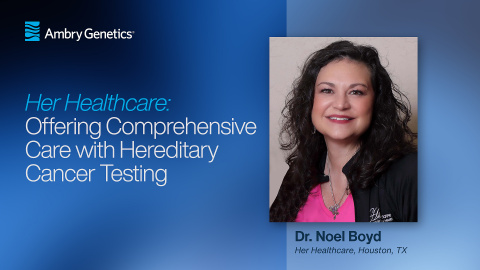- By Sarah Campian, MS, CGC
- Posted October 21, 2025
The Gene Scene: MSH2
Welcome to the Gene Scene! Each week, we will explore a gene from the ACMG Secondary Findings list—genes identified by the American College of Medical Genetics and Genomics as having clear, actionable health implications. These genes are included because they’re linked to serious but preventable or manageable conditions when identified…
- By Amanda Jacquart, MS, LCGC
- Posted September 9, 2025
The Gene Scene: APC
Welcome to the Gene Scene! Each week, we will explore a gene from the ACMG Secondary Findings list—genes identified by the American College of Medical Genetics and Genomics as having clear, actionable health implications. These genes are included because they’re linked to serious but preventable or manageable conditions when identified…
- By Lauren Csukardi
- Posted April 22, 2025
April 2025 Hereditary Cancer Menu and Reporting Updates
At Ambry, we’re continuing our track record of scientific innovation and discoveries with our latest hereditary cancer testing menu enhancements and reporting updates—powered by Ambry Classifi®. Our peer-reviewed, published gene-disease validity (GDV) scheme enables the enhanced assessment and characterization of RPS20 for colorectal…
- By Jessica Scott, MGC, CGC
- Posted January 15, 2025
From Fear to Empowerment: A Patient's Perspective on the Ambry CARE Program
We talk about the Ambry CARE Program® (CARE) a lot – how it helps providers identify high-risk patients, offers genetic testing and genetic counseling at scale, and gives patients insights to help them better manage their health. All of that is very powerful, but people also often ask what CARE looks like from the patient’s perspective.…
- By Jessica Scott, MGC, CGC
- Posted October 16, 2024
Polyposis Explained: Solving the Mystery with RNA Testing
As a genetic counselor at Cone Cancer Center for the last twelve years, Karen Powell, CGC, enjoys helping patients understand their cancer risks. Hereditary cancer testing may provide important and possibly life-saving information for not only the patient but their family members as well. Many patients present with a family history of cancer,…
- By Jodi Tahsler
- Posted August 19, 2024
From Lynch Syndrome Diagnosis to Advocacy: A Patient and Genetic Counselor Reconnect
In honor of Patient Advocacy Day, Ambry connected with a genetic counselor and one of her former patients to find out how genetic testing made a difference for his healthcare and inspired him to advocate for other patients. Ofri Leitner, MS, LCGC, is a genetic counselor who currently manages the Oncology Genetics Program at UNC Rex Cancer Center…
- By Marcy Richardson, PhD
- Posted March 28, 2024
APC: New Takes on an Old Gene
A Brief History of APC The APC pathway was discovered in 1982 (more than 40 years ago!). APC is a tumor suppressor gene, meaning it helps the cell division process happen in a controlled way, which helps prevent tumor development. In 1991, Kinzler and Vogelstein discovered that pathogenic variants in the APC gene are…
- By Noelle Carbognin
- Posted March 22, 2024
Transforming Fear into Action and Advocacy: Our Family’s Lynch Syndrome Story
It has been almost 3 years since my father was offered genetic testing after developing three different types of cancers. He also had an alarming family history – multiple relatives with cancer, going back generations. After he received a positive result for Lynch Syndrome, putting him at an increased risk for colon cancer and other types of…
- By Liese Vito, MD
- Posted February 7, 2024
CARE Patient Examples at Lake Health
Many patients are anxious about their family history—more than providers realize. In some cases, they may feel like a ticking time bomb with no options. In Part One of this blog series, I talked about The Ambry CARE ProgramTM and how Lake Health has been able to use it to identify more high-risk patients, increase family history and cancer risk…
- By Meagan Farmer
- Posted August 2, 2023
Her Healthcare: Offering Comprehensive Care with Hereditary Cancer Testing
Dr. Noel Boyd is an OB/GYN who has been in private practice in a suburb of Houston, TX, for 21 years. The patients seen in her practice, Her Healthcare, range in age from 9 to 99, and she cares for them through everything from routine exams to high-risk pregnancy, from contraception counseling to cancer screening. “I really love taking care…
